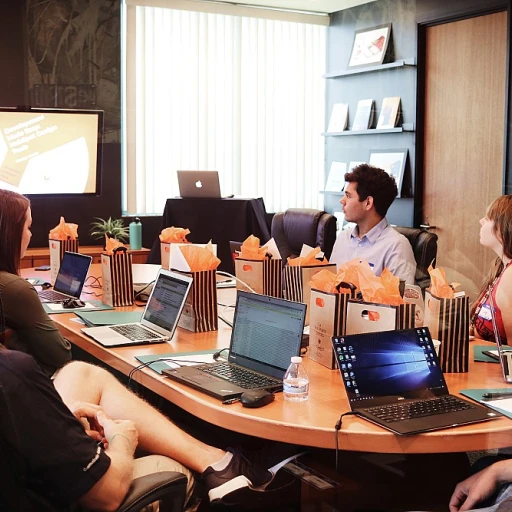
Understanding Bespoke Training
What Sets Bespoke Training Apart?
Bespoke training, often termed custom or tailored training, stands distinct in the realm of professional development. Unlike standard training programs that offer one-size-fits-all solutions, bespoke training designs each course to fit the specific requirements of a business or an individual. The power of this approach lies in its ability to align training courses precisely with the unique goals and challenges facing the workforce or team.Why Move Away from Off-the-Shelf Training?
Many businesses have traditionally relied on off-the-shelf training programs. While these can be cost-effective and time-saving, they often fall short in addressing specific skill gaps or industry nuances. A generic course will lack the key elements that bespoke training can offer, such as industry-specific knowledge and alignment with company values. Moreover, with the rise of complex technologies like Azure and AWS, the need for customized training in skills development has become more crucial. Tailored learning modules ensure that the training content is directly applicable and immediately beneficial to the learning objectives of both the business and the individual.Customization in Practice
Bespoke training includes everything from hypothetical risk assessment scenarios to real-world case studies that might emulate a company's exact supply chain challenges. This approach enables teams and individuals to apply soft skills or technical lessons in the most relevant contexts, enhancing the learning experience and retention. While this personalized approach may involve a higher initial financial investment, it often provides significant returns in improved team performance and business outcomes. Explore how to optimize your path with tailored approaches to learning and see how a bespoke training schedule can revolutionize your business's training solutions.The Role of Bespoke Training in Reskilling
Customized Approaches to Learning
The role of bespoke training in the reskilling process cannot be overstated. This approach allows for a multitude of opportunities to elevate the learning experience, far surpassing conventional courses. By focusing on personalized training solutions, businesses can foster an environment where employees thrive through tailored learning modules.
Many organizations find themselves at a crossroads, choosing between conventional shelf training and customized bespoke training options. While traditional shelf courses offer a broad starting point, they often lack the specificity needed to tackle unique corporate challenges or develop particular soft skills and technical skills relevant to employees' specific roles. Bespoke training allows for deep dives into critical areas that off-the-shelf options can't adequately cover, such as advanced usage of Azure and Microsoft platforms or understanding of intricate supply chain dynamics.
Boosting Employee Engagement and Efficiency
Bespoke training programs offer the flexibility to integrate a variety of training content and training services, designed not only to achieve learning objectives but also to boost employee engagement and improve efficiency. As case studies have shown, when training is crafted to meet the individual needs of the team, the result is a more engaged and competent workforce capable of strategic moves, particularly in sectors like business development and financial risk assessment.
Moreover, this individualized approach is more cost-effective over time, as it minimizes the chances of needing multiple iterations of training courses to address the same competencies. With an investment in becoming proficient with the right bespoke training programmes, organizations are positioned to benefit from long-term financial gains, offsetting initial investment costs through enhanced productivity and reduced employee turnover.
Discover more about enhancing learner experiences in strategic setups by exploring insights from Diving into Learner Experience Insights.
Identifying Individual Needs
Finding the Perfect Fit for Each Learner
Identifying individual needs is a cornerstone for effective bespoke training. One-size-fits-all approaches, often found in shelf courses, can miss the mark when it comes to truly engaging employees and enhancing their skills. In contrast, bespoke training courses take into account the unique circumstances of each learner. This not only optimizes time and financial investment but also leads to more impactful learning outcomes. To start, conducting a thorough risk assessment in the learning and development process is crucial. This helps organizations understand where skill gaps lie within their team and highlights areas in need of support and development. For example, customized training programs for cloud platforms like Azure and AWS can address specific technical challenges faced by IT teams, unlike generic shelf training that may not address particular business needs. A diverse range of learning solutions, from instructor-led sessions to online modules, can be leveraged to cater to various learning styles and needs. Also, the incorporation of soft skills training alongside technical knowledge ensures that employees are well-rounded and prepared for dynamic business environments. Moreover, utilizing training services to conduct comprehensive needs analysis ensures that the learning content is precisely tailored. This can include bespoke training courses specifically designed to enhance the skills within a supply chain team or tailored solutions for financial services personnel. Crafting an effective succession plan for reskilling can also be part of the bespoke strategy, ensuring the organization remains agile and adaptive. Ultimately, identifying individual needs effectively sets the stage for creating training programs that deliver tangible, long-lasting benefits, whether it's through on-demand training programs or tailored solutions that specifically address the evolving demands of the business world.Case Studies: Success Stories
Real-world Implementations of Bespoke Training
In recent years, many organizations have embraced bespoke training solutions to effectively reskill their workforce. These case studies demonstrate the power of tailored learning and how it can be leveraged to meet specific business goals.
One successful implementation can be seen in a technology company aiming to enhance its team's technical prowess. This organization replaced generic shelf training with customized training courses focusing on skills like AWS and Microsoft Azure. By creating learning modules that aligned with their business's tech stack, they ensured the content was relevant and engaging.
Another example is from the financial sector, where a firm sought to enhance its supply chain operations. They opted for bespoke training programs focusing on risk assessment and soft skills development. By integrating instructor-led sessions with digital learning solutions, they achieved a substantial cost-time balance, leading to marked improvements in efficiency and performance.
A case study in healthcare illustrates how bespoke courses supported ongoing professional development. The hospital crafted a training course specifically for its team, focusing on the latest medical procedures and patient care techniques. As a result, employee satisfaction and patient outcomes improved significantly.
Lastly, a business in the manufacturing sector chose bespoke training to address gaps in their workforce's skills. By tailoring training programmes to meet individual learning needs, the company not only filled skill gaps but also fostered a culture of continuous improvement and adaptability.
These case studies underscore that while the challenges of bespoke training include costs and time investment, the tailored approach ultimately yields substantial benefits. By creating bespoke shelf courses, businesses ensure their workforce remains agile and competitive in the ever-evolving market landscape.













